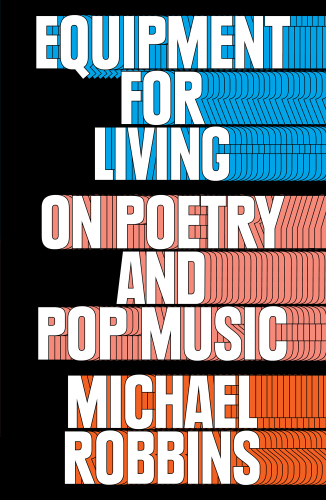
Equipment for Living
On Poetry and Pop Music
کتاب های مرتبط
- اطلاعات
- نقد و بررسی
- دیدگاه کاربران
نقد و بررسی

June 1, 2017
Are Wallace Stevens and Bob Dylan permanently at odds, or do they have something in common?For poet Robbins (The Second Sex, 2014, etc.) the answer is probably yes to both; pop isn't poetry, regardless of what the Nobel Academy might think, but both enthusiasms scratch an itch the other can't reach. The contrast between the two is the hook on which the author hangs this debut collection of criticism, which doesn't aim to resolve the dispute so much as to display the intellectual journey of a former Journey fan. Robbins writes hilariously about Neil Young's apparently awful memoir and informatively about the various types of metal (heavy, death, speed et al.). In a review of Pauline Kael's work, he nails an essential fact about good critics: they don't echo your opinion so much as challenge or unsettle it. Robbins himself fails the Kael test where Taylor Swift is concerned; his mash note to her album "Red" likely won't persuade the uninitiated to at least give it a try. But Robbins is far more astute on poetry than pop, possibly because he's a practitioner of one and mostly a learned fan of the other. He has an Oedipal wrestle with James Wright and James Dickey and delivers a blisteringly funny attack on Robert Hass that stops just short of being a full-scale demolition job. In the most vital piece, Robbins writes at some length on the poetry of Frederick Seidel, whom the author seems to see as a poet whose upfront tastelessness (about the Holocaust or 9/11) is actually a type of reverse psychology: a way of shocking readers into questioning the value of taste when addressing the horrors of modern life. Robbins prefers his equipment for living abstract, but he can definitely take it straight, a point the book's concluding Basho-to-Beyonce and Beyond playlist makes abundantly clear.
COPYRIGHT(2017) Kirkus Reviews, ALL RIGHTS RESERVED.

August 1, 2017
In his first book of essays, Robbins (English, Montclair State Univ.; The Second Sex) displays a catholic taste in poetry, music, and film. In his serious yet playful and sentimental world, John Milton, Wallace Stevens, and Elizabeth Bishop keep company with Van Halen, Billy Collins, and Jason Isbell. The best pieces, including "Rhyme Is a Drug," "Kill Rock Stars' Memoirs," and "Frederick Seidel's Bad Taste" succeed because Robbins focuses on the nuances of his subjects (e.g., the functionality of rhyme in poetry, the banality of rock memoirs, and Seidel's irreverent poetry). Some entries suffer, particularly when Robbins affects a presentation as a man-critic of the people (e.g., his adolescent obsession with the band Journey or taking his class to see the mathcore band Converge in concert). A few pieces miss the mark, such as an essay on heavy metal that manages to be condescending, and a completely neutral take on Bob Dylan winning the 2016 Nobel Prize in Literature. Particularly insightful and fun is a "Playlist" that includes numerous entries on Robbins's favorite things. VERDICT Fans of New Yorker-style pop culture reviews and contemporary poetry will find plenty to enjoy. Recommended for all libraries.--Brian Flota, James Madison Univ., Harrisonburg, VA
Copyright 2017 Library Journal, LLC Used with permission.

























دیدگاه کاربران